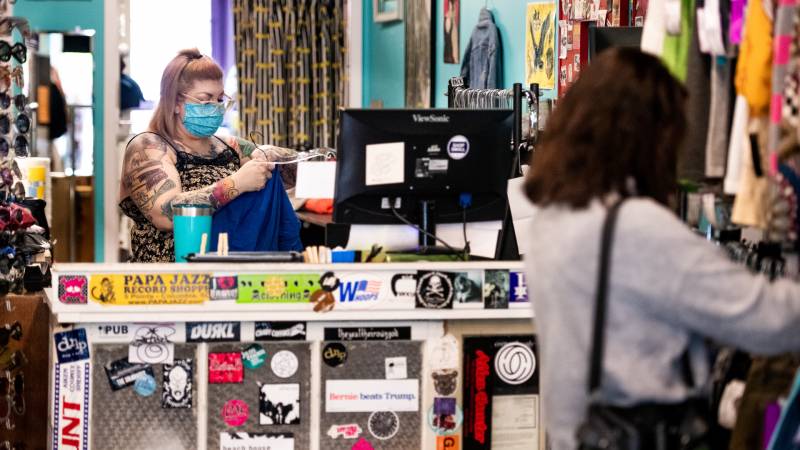The garment industry is a major global polluter and a significant source of greenhouse gas emissions. With the rise of social apps like TikTok, fashion trends come and go in a flash, and the fast-fashion industry is expanding to keep up. In an effort to be more environmentally conscious, many young people have started thrifting, which has quickly become a trend of its own. Apps like Depop allow users to resell clothing, and proponents claim they help keep products out of landfills. But critics of the apps say that resellers are raiding thrift stores to make a profit, causing prices to rise and inventory to shrink. In this youth-produced segment for KQED’s Youth Takeover, we talk about thrifting as a solution to combat fast-fashion and the ethics surrounding it.
Youth Takeover: Thrift Shopping Has Become More Popular — and Controversial

COLUMBIA, SC--APRIL 23: Megan Yelton works at Sid and Nancy thrift and consignment store as a shopper browses a rack of clothes on April 23, 2020 in Columbia, South Carolina. (Sean Rayford via Getty Images)
Guests:
Jennifer Wang , fashion designer; former fashion blogger, Sustainable Siren
Melina Kritikopoulos, member, KQED's Youth Advisory Board; senior, Santa Clara High School
Elysa Dombro, staff writer, Daily Californian student newspaper<br />
Joy Cheng, member, KQED's Youth Advisory Board; senior, Lowell High School
Terry Nguyen, reporter, The Goods at Vox
Sponsored